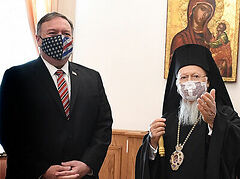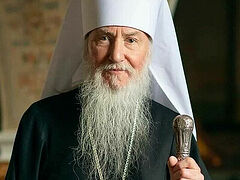Source: The American Conservative
August 20, 2024
As the Russia–Ukraine conflict continues well into its third year, we naturally focus on the military struggle. A less visible but equally important battle is being waged within Ukraine’s religious communities. This conflict reveals the complex interplay between faith, nationalism, state power, and the ongoing war.
Ukraine has historically been at the center of the Eastern European Orthodox world. It is on the banks of the Dnieper River in Kyiv that Eastern European Orthodoxy was born in 988 as a Slavic offshoot of Byzantium’s Greek Orthodoxy. It adopted Slavonic, a proto-Slavic tongue, as its liturgical language—a language the Ukrainian Orthodox Church (UOC), the largest religious organization in the country, still uses.
In 2019, the Orthodox Church of Ukraine (OCU) was founded in accordance with then President Petro Poroshenko’s “one nation, one church” vision. Poroshenko believed that an independent, national church was essential for national security, as opposed to the traditional UOC church, which was independent in governance but retained its legacy ecclesiastic connection with the Russian Orthodox Church based in Moscow. One way that the OCU displayed its nationalism was by replacing Slavonic with Ukrainian as its liturgical language.
... Read the rest at the American Conservative.
Follow OrthoChristian on Twitter, Vkontakte, Telegram, WhatsApp, MeWe, and Gab!




